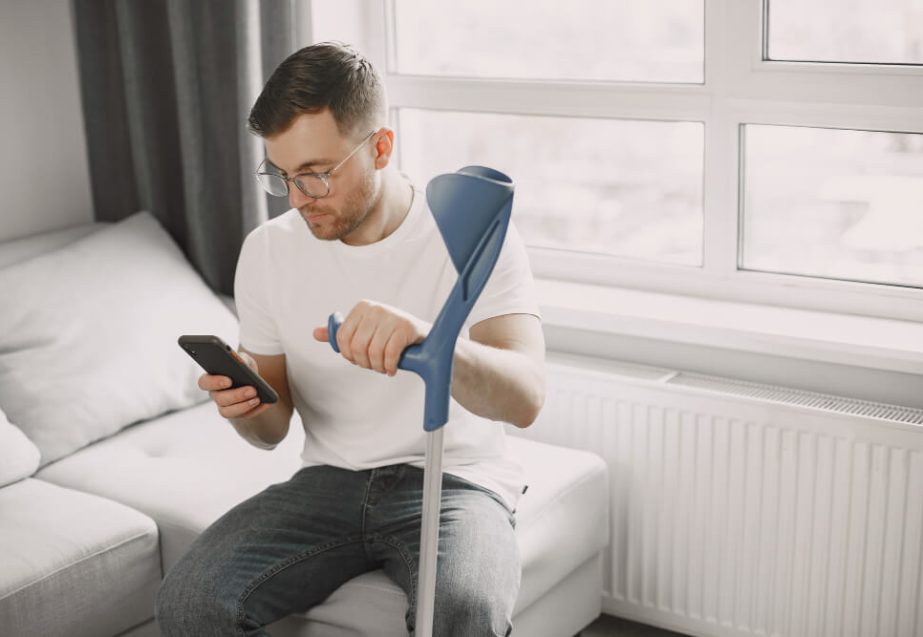
Mistakes that a person makes right after getting injured can often leave long-lasting consequences. It can be delayed in the overall treatment or complications in claims.
Thus, it is necessary to understand the top mistakes to avoid after an injury! It can help you to deal with common pitfalls while focusing on your health, keep your documents organized and make informed decisions.
Personal injury accidents can occur in the blink of an eye. Those who have experienced it know how stressful and overwhelming it can be!
One second, you are going about your day, perhaps driving somewhere, walking through a store, or working on a new DIY project at home.
The next moment, you could be in great pain, confusion, and unsure about what to do!
Trust me! The experience can be quite disorienting, and these mistakes can have an immediate impact on your overall health.
In places like Lafayette, minor or serious accidents can affect both daily life and long-term well-being.
There are many people who solely focus on the recovery process. However, they overlook the steps that can actually help them to protect all sorts of legal rights along with the fair compensation.
Hi, in today’s blog, I will explore five key mistakes to avoid, helping you navigate the aftermath of a personal injury with clarity, confidence, and control.
What Are The Top Mistakes to Avoid After An Injury?
After an injury, some of the top mistakes to avoid include neglecting medical care, ignoring your body’s signals, rushing your recovery, and failing to follow professional medical advice.
Mistake 1 – Not Contacting A Lawyer Promptly
The first and most common mistake is delaying contact with a lawyer right after getting injured.
It is necessary to consult a lawyer, as it can ensure that all your rights are well preserved and that their evidence is well documented.
Now, people often underestimate how complicated a personal injury claim can be! You cannot just manage everything on your own!
When it comes to legal aspects, one minor mistake can easily reduce the compensation or weaken your claim.
However, it is important to understand that you need to contact a local lawyer. Let’s say you experience an injury in Lafayette.
So, you should look for a reputable personal injury attorney in Lafayette, such as the ones at On My Side Law firm. They will guide you through legal requirements, deadlines, and paperwork.
It’s crucial to provide factual information only and avoid speculation. Your lawyer will advise on how to respond appropriately.
They help prepare statements, review any correspondence, and communicate strategically with third parties. This ensures the narrative remains accurate while protecting your legal interests.
In essence, having a lawyer early allows the focus to remain on recovery while ensuring the case is handled correctly, maximizing both efficiency and potential outcomes.
Mistake 2 – Failing To Seek Immediate Medical Attention
It is considered skipping or delaying medical evaluation as a serious mistake of even a higher degree. “A stitch in time saves nine” is the popular phrase that summarizes the importance of having medical attention at the right time.
Not only does medical treatment help to get the full-fledged injuries healed, but it also creates the necessary legal claims.
People are quite prone to neglecting a minor pain by assuming the body to heal itself; however, invisible injuries may get worse with time.
Thus, immediate medical attention allows doctors to uncover the hidden injuries, advise the proper treatments, and, most importantly, give the professional documentation for bodily injury claims.
This documentation is one of the ways to demonstrate the damages and give the right to receive compensation.
Besides legal reasons, the first treatment phase turns out to be really useful for the person, as he can recover faster and the health risks become lower.
In addition to this, following medical advice, going to the doctor for his follow-up appointment, and keeping good records of health are not only beneficial for your health condition but? Also, for your personal injury claim.
Thus, they become a solid base for any conversations with your insurance company or attorney.
Mistake 3 – Ignoring Documentation And Evidence
The failure to collect evidence right after an accident is a mistake that can greatly influence the claim.
Photos of the accident scene, receipts for expenses, medical records, and contact information of witnesses are all indispensable.
If there are delays in documentation, it may result in evidence that may be missing or disputed at that time.
Maintaining orderly records not only facilitates medical and legal claims but also serves as proof.
For instance, pictures of bodily harm taken at the time of or shortly after the accident indicate severity and the progression of the injury.
The money spent on the treatment or the wages lost because of the injury both measure the financial impact.
The advice of a lawyer in the local area is always sought in such cases. The lawyer will not only inform you of the type of evidence needed but also the proper way to maintain it.
Documenting events and situations in detail not only increases the strength of the case, but also alleviates the doubt factor and makes it possible for insurers or courts to have an easy and accurate account of what was damaged and the expenses incurred.
Mistake 4 – Returning To Daily Activities Too Quickly
Resuming work, driving, or taking part in any kind of sports or physical activities before being medically cleared is among the other common mistakes made.
Early exertion on the part of the injured can lead to the worsening of the injury and complicated treatment.
It can also interfere with one’s claim if it seems the injury was slight. A doctor’s instructions should be rigorously followed.
In the course of the doctor’s prescribed treatment, ranging from rest to physical limitations, one should only do the activities allowed.
Recovering at a slower pace is the key to fewer long-term complications and improved outcomes in the body’s functions.
The correct pace also shows that the injury was severe and that it was taken care of appropriately.
It also makes sure that the recovery period corresponds with the documentation available for insurance companies or attorneys.
This, in turn, results in there being a link between the medical treatment and the legal process.
Mistake 5 – Letting Fear Or Stress Dictate Decisions
Emotional responses, such as fear, stress, or embarrassment, can lead to impulsive decisions. People may settle too quickly, ignore professional guidance, or delay seeking help due to anxiety. These choices often compromise both recovery and compensation.
It’s important to take measured steps, seek support, and rely on guidance from medical and legal professionals.
Maintaining clear communication ensures informed choices. Consulting trusted advisors helps balance emotional reactions with practical decision-making.
People who manage stress effectively can focus on healing, organizing evidence, and making decisions that protect health and legal rights simultaneously.
Do Not Harm Your Case, Get A Lawyer Immediately!
Avoiding these six mistakes, such as delaying a lawyer, skipping medical care, giving statements without guidance, ignoring documentation, rushing daily activities, and letting stress dictate choices! These can protect you from health, legal rights, and potential compensation.
Consulting a personal injury attorney provides local expertise, helping individuals navigate complex claims while focusing on recovery.
Taking deliberate, informed steps ensures both safety and fair outcomes. By being proactive, organized, and mindful, individuals can move forward from a personal injury with confidence and control.











0 Reply
No comments yet.